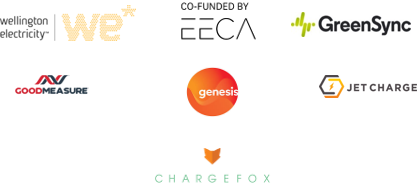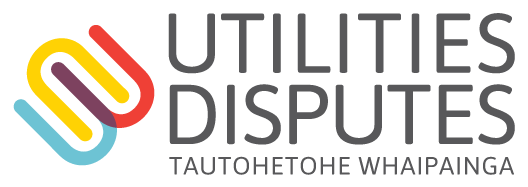EV Connect
As electric vehicle (EV) uptake increases, electricity networks will be required to manage the associated increase in demand for electricity. The increase will be significant – our studies show that a small EV will increase household electricity use by 35%. This can be supported most of the time but becomes challenging during peak demand periods (in the evenings) when our network is already busy.
Our job as an electricity distributor is to enable consumers to choose the vehicles they want and support the way they want to use them. To ensure our service remains affordable and the network remains reliable, consumers may need support in charging their EVs at times when our network is less busy.
The EV Connect project investigated how more energy could be delivered through the existing electricity network. Specifically, it has developed the steps needed for the network to work with consumers who have smart devices that can be used to shift demand to less congested periods. This will allow us to minimise the amount of traditional, slow-to-build and expensive network reinforcement required – helping to keep prices low while maintaining a secure electricity supply.
EV Connect is a co-funded Energy Efficiency & Conservation Authority (EECA) Low Emission Vehicles Contestable Fund project. Meet the EV Connect team:

The EV Connect programme:
- Successfully tested the technology needed to manage EV charging on behalf of customers. This included testing whether multiple chargers could be managed at once so that vehicles were charged away from busy periods on the network.
- Developed the EV Connect Roadmap – a document detailing the actions needed to securely connect EVs to the electricity network and to develop services that can manage their charging away from congested periods. The EV Connect Roadmap was made using stakeholder input from the likes of policymakers at MBIE, other distribution networks, Transpower (New Zealand's power System Operator and National Grid owner), regulators including the Commerce Commission and the Electricity Authority, electricity retailers, consumer advocates and EV user groups.
The EV Connect Roadmap can be read or downloaded below. The preceding EV Connect workshop and consultation documents are also provided below.
Related Documents

EV Connect Draft Roadmap consultation document (June 2021)
We have been working with stakeholders to articulate the steps required to support EV adoption. The EV Connect Draft Roadmap used stakeholder feedback to draft the actions and steps needed to accommodate EVs onto the electricity network.
1.7 MB | pdf

EV Connect workshop 2 – Draft Roadmap (June 2021)
On the 9th of June 2021 we held a workshop to present the draft Roadmap and to discuss some of the more complex issues. The workshop presentation is provided here.
2.9 MB | pdf

EV Connect stakeholder consultation response document (March 2021)
This document summarises stakeholder feedback from the first consultation which addressed the issues and challenges of connecting EV’s. This feedback was used to draft the EV Connect Roadmap.
685 KB | pdf

EV Connect stakeholder consultation document - Issues and challenges of connecting EV’s (Oct 2020)
This consultation document outlines the drivers for change and lessons from international experience (the good, bad and interesting). We zoom in on the EV context in New Zealand and for Wellington Electricity more specifically – both what’s coming in terms of EVs and what that might mean for different parts of our network and industry stakeholders.
821 KB | pdf

EV Connect workshop 1 - Issues and challenges of connecting EV’s (Oct 2020)
Our first stakeholder workshop presented the consultation document which discussed issues and challenges of connecting EV’s.
3 MB | pdf




To help improve our service, what feedback can you give us about this page?